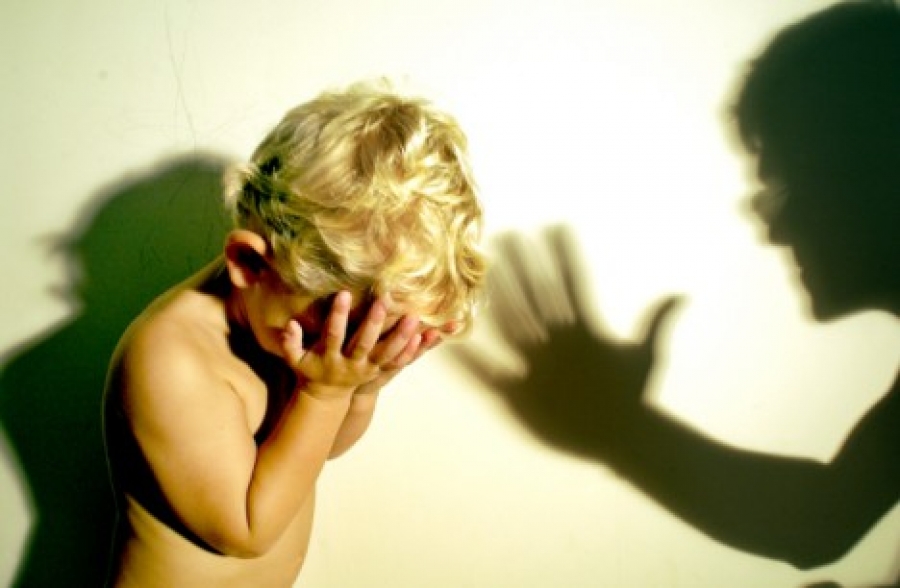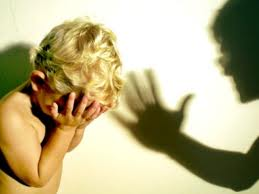By Tammy Epstein, Educational Psychologist at PsychMatters Family Therapy Centre
Have you ever wondered if smacking damages your child emotionally?
The short answer is yes. But, if you’re anything like me, you’ll want to know why. You may be thinking that you were smacked, and surely your parents knew best? Every parent does the best they can, with what they have, and what they know. But, knowledge is ever-evolving. Simply put, we know more about human development today, and our children – in turn – will know more tomorrow. As parents, we naturally seek to enrich our knowledge, to be the best parents we can possibly be. We can choose to make changes, at any time, as we develop and grow, as parents and human beings.
So, why is smacking so bad?
- Smacking isn’t smacking. Nor is it spanking, slapping, flicking, or tapping. These words, and more, are euphemisms to make us feel more comfortable with what we’re really doing: physically hurting our children, by hitting them. There’s a reason why the line between hitting and abuse can’t be drawn. Saying that a small slap or flick is ok because it doesn’t hurt much, is like saying it’s ok to call someone ugly, as long as you don’t call them stupid as well. Any form of abuse degrades and violates a person, especially one smaller and weaker than ourselves. A little abuse is still abuse. There really is no line. Any hurtful act towards another person is abusive – whether it is hitting, pinching, biting, pushing, pulling, or anything else hurtful.
- Hitting (or the threat of it) instills an unhealthy sense of fear in a child (unhealthy, because the purpose of fear is supposed to be to protect us). We may make the mistake of confusing fear for respect. As parents, what we really want is a child who obeys us out of respect, not fear underpinned by anger. Fear may seem to “work”, when a child is small, but respect is lifelong.
- The aim of discipline is to serve the child, by teaching him/her life skills. We offer an appropriate consequence for inappropriate behaviour. Hitting isn’t an appropriate consequence, and does not serve the child. We hit when we feel angry, and lose control of ourselves. We do NOT hit out of love. There is never any justification for hitting another person. The life lesson we teach our children is that it’s not only ok, but desirable, to lash out and hurt others, when we feel angry – that self-control is unnecessary. Children learn by what they observe us doing, not by what we tell them to do. It really is monkey-see, monkey-do. Do as I say, not as I do, simply does not apply.Instead of teaching them coping skills to manage their anger, hitting teaches children to have anger-management problems. These problems may manifest at school (when a child starts hurting their playmates), or at home (hurting siblings, parents, and family members). A child may start hitting or breaking things on purpose, sometimes even their own toys. S/he may even engage in self-harming behaviour, such as banging his/her head on the wall or floor.To add insult to injury, parents may again resort to hitting the child, as punishment, instilling more fear and anger in the child, and further conditioning them to have emotional and behaviour problems.
It is often at this point when parents seek therapy for the child. Therapy that can only work, if parents are prepared to stop the hitting, that lies at the root of the problem. - As parents, we are tasked with preparing our children for adult life. In the real world, physical violence towards others holds negative consequences, and is punishable by law. By hitting our children, we teach them to adopt antisocial behaviour patterns, which someday may get them into a lot of trouble, or even land them behind bars. Our actions today build our children for tomorrow. As parents, we teach our children right from wrong. We don’t punish a child for stealing, by stealing something of theirs, because we want them to learn that stealing is always wrong, for children and adults. So, what are we trying to teach them by hitting? That hitting is always wrong for children, but becomes right when you’re an adult? Are we really sure this is the lesson we want them to learn?
- Our formative years are in childhood. Children do not yet have the cognitive resources or life experience of adults. A child’s mind is unable to integrate the parent as both the person who loves and cares for them, and the person who intentionally harms them. As a result, when the child is under stress, they ‘split’ – becoming alternatively clingy, babyish and excessively needy; and hostile, withdrawn, defensive and angry. In short, hitting can be a major factor in precipitating the onset of some very hard to treat anxiety disorders (such as Separation Anxiety Disorder and Phobias), mood disorders (such as Depression and Bipolar Mood Disorder), behaviour disorders (such as Oppositional Defiant Disorder), and personality disturbances.As the child becomes more difficult, parents battle to cope with such an out-of-hand child. They become increasingly stressed and angry with the child, often leading to further negative parental behaviour (such as shouting and hitting), and causing further damage to the parent-child relationship.
- Of all the people our children learn from, they learn the most from their parents. We are their primary, and most significant role models. The behaviour we show them is internalized as the normal, appropriate behaviour for men and women. Parental behaviour serves as the prototype for the kind of person the child will become, and the kind of partner they will seek one day. Hitting conditions a child to unconsciously seek abusive relationships, in which they will suffer unhappiness, as abusers and/or victims of abuse.
- Clients often quote “Spare the rod, spoil the child” to me, when I advise them against hitting their children. For the record, I normally do not engage in debates of a theological nature with clients, as this is not my area of expertise. But, since this quote keeps on coming up, I decided to research it. I found that this quote is not actually from the Bible, but rather from a poem written by Samuel Butler in 1664, entitled “Hudibras”. The Biblical verse in question is: “He who spares the rod hates his son, but he who loves him is careful to discipline him” (Proverbs 13:24), written by King Solomon, giving his advice on parenting, and presumably reflecting his own parenting style. Curious to know how Solomon’s parenting turned out, I researched his son, Rehoboam. I discovered that Rehoboam became a very violent, widely hated ruler, who barely avoided assassination by his own people, by taking flight to Jerusalem, after his representative was stoned to death. Rehoboam is quoted as proclaiming to his people: “My father made your yoke heavy, but I will add to your yoke: my father chastised you with whips, but I will chastise you with scorpions” (1 Kings 12: 13-14).
The above are the findings of my research. My only comment is: Food for thought.
So, what are appropriate consequences (punishment) then, if hitting is out?
- Consequences need to be age-appropriate. A time-out (preferably in a room or corner with nothing stimulating in it) is ideal for younger children. It serves the dual purpose of giving both the child and parent time to cool off. Allow the child to cry, shout, and express their anger, if they need to. Blowing off steam on their own is healthy. You can do the same, in another area of the home! In my experience working with parents, Super Nanny’s one minute for each year of the child’s age isn’t long enough. I suggest you double it. Triple it, for repeat offences (when the child has already broken the rule in question once today, and is receiving another punishment).
- Temporary withdrawal of privileges (e.g. no TV for the rest of the day, taking away their cell phone until the next morning, removal of a favourite toy until the next day). Remember that love, affection and healthy food are a child’s rights, not privileges.
- A boring chore that the child can safely perform (e.g. mopping the floor, hanging up the washing, washing-up).
- While I am normally not in favour of conditioning fear into a child, I am always in favour of saving a life. To condition a very small child not to do something that may harm them (e.g. not to put their hand on the stove, or into a plug point), use the natural fear of loud noises. Shout and make a loud banging sound, when the child puts his/her hand out to touch the plug. The child will become frightened, and probably cry. Repeat this every time, until the child is afraid of touching the plug. If you are near enough, scoop them up at the same time as shouting (using their second natural fear of losing their balance, as a reinforcer). Job done.
So, what now?
Join me in stopping the smacks. Make a house rule of no hurting in your home, which applies to everyone living in, or entering, your home. Take up the challenge to spread the word. Let’s work together, on behalf of our children. The years we have to shape our children into healthy, happy, well-adjusted people may be few, but they are also the most important. Together, we can change the world, one child at a time!
For guidance and support in stopping the smacks and to find an alternative and more effective way to discipline your child, contact PsychMatters Family Therapy Centre on (011) 450-3576. E-mail info@psychmatters.co.za



